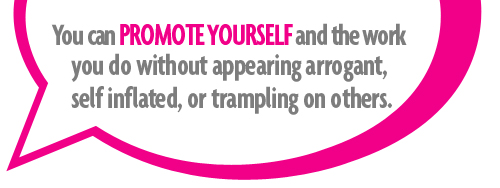Posts Tagged ‘give and receive feedback’
 If you want to freak out the people you work with, tell them, “We need to talk.” If you really want to freak them out, say those four magic words on a Friday, or even better, the day before someone goes on vacation. “We need to talk” is rarely followed by, “and you’re awesome.” People know bad news is likely coming, and they’ll inevitably be on edge.
If you want to freak out the people you work with, tell them, “We need to talk.” If you really want to freak them out, say those four magic words on a Friday, or even better, the day before someone goes on vacation. “We need to talk” is rarely followed by, “and you’re awesome.” People know bad news is likely coming, and they’ll inevitably be on edge.
The antidote to asking for time to talk is to create opportunities to give feedback regularly.
There are many reasons giving feedback is hard. One of them is we wait too long. Something happens. We know we should address it, but we don’t want to. So we wait to see if the behavior is really ‘a thing.’ Then it happens again. And now we know it’s ‘a thing.’ But we still don’t want to address it. Then the situation gets really bad, and now we have to say something. The conversation then takes 90 minutes, is painful, and everyone goes home unhappy.
Here are two key to make giving feedback easier:
Giving feedback strategy one: Debrief everything. Do a quick plus/delta on a regular basis to assess how things are going. Plus – what went well? Delta – what would we change if we could/what did we learn?
I recommend doing a quick debrief at the end of important meetings, hiring processes, projects, and when anything changes. Conduct a short debrief when you have staffing changes, gain or lose a client, launch or eliminate a product or service, etc. Change is an opportunity to evaluate how you work and to make appropriate adjustments.
When you debrief important events, you tell people that feedback is important and that it’s ok to be candid. Conducting regular debriefs also gives employees a chance to practice giving feedback, which is a hard skill. And like anything, the more we give feedback, the easier it becomes.
Conducting short, regular debriefs is one of the easiest ways to learn from the past and become a more candid culture.
Giving feedback strategy two: Schedule five to fifteen minutes each week to talk as a team or with direct reports. When you know you have time each week to talk with your manager, direct reports, and/or team members, you never have to ask for time to talk. Issues don’t build up or linger. Breakdowns and frustrations are discussed within of few days of their occurrence, and no one is on edge that bad news is coming at their end of their vacation.
The key to being effective at giving feedback is to give feedback regularly. Short, frequent feedback conversations are much more effective than infrequent, long conversations that everyone dreads and leaves feeling exhausted and demoralized.
Debrief everything meaningful. Meet with people weekly. Ask for and give feedback as things happen, and watch your culture change.


If you want to freak out the people you work with, tell them, “We need to talk.” If you really want to freak them out, say those four magic words on a Friday, or even better, the day before someone goes on vacation. “We need to talk” is rarely followed by, “and you’re awesome.” People know bad news is likely coming, and they’ll inevitably be on edge.
The antidote to asking for time to talk is to create opportunities to give feedback regularly.
There are many reasons giving feedback is hard. One of them is we wait too long. Something happens. We know we should address it, but we don’t want to. So we wait to see if the behavior is really ‘a thing.’ Then it happens again. And now we know it’s ‘a thing.’ But we still don’t want to address it. Then the situation gets really bad, and now we have to say something. The conversation then takes 90 minutes, is painful, and everyone goes home unhappy.
Here are two key to make giving feedback easier:
Giving feedback strategy one: Debrief everything. Do a quick plus/delta on a regular basis to assess how things are going. Plus – what went well? Delta – what would we change if we could/what did we learn?
I recommend doing a quick debrief at the end of important meetings, hiring processes, projects, and when anything changes. Conduct a short debrief when you have staffing changes, gain or lose a client, launch or eliminate a product or service, etc. Change is an opportunity to evaluate how you work and to make appropriate adjustments.
When you debrief important events, you tell people that feedback is important and that it’s ok to be candid. Conducting regular debriefs also gives employees a chance to practice giving feedback, which is a hard skill. And like anything, the more we give feedback, the easier it becomes.
Conducting short, regular debriefs is one of the easiest ways to learn from the past and become a more candid culture.
Giving feedback strategy two: Schedule five to fifteen minutes each week to talk as a team or with direct reports. When you know you have time each week to talk with your manager, direct reports, and/or team members, you never have to ask for time to talk. Issues don’t build up or linger. Breakdowns and frustrations are discussed within of few days of their occurrence, and no one is on edge that bad news is coming at their end of their vacation.
The key to being effective at giving feedback is to give feedback regularly. Short, frequent feedback conversations are much more effective than infrequent, long conversations that everyone dreads and leaves feeling exhausted and demoralized.
Debrief everything meaningful. Meet with people weekly. Ask for and give feedback as things happen, and watch your culture change.

 Every time I get on a plane I’m grateful that skype isn’t allowed and that cell phones haven’t made it to the friendly skies. I can’t imagine sitting in a relatively small, contained space for that long, while numerous people chat away.
Every time I get on a plane I’m grateful that skype isn’t allowed and that cell phones haven’t made it to the friendly skies. I can’t imagine sitting in a relatively small, contained space for that long, while numerous people chat away.
There was no such luck in jury duty last week when people passed the time watching TV on their phones and iPads, WITHOUT headphones. Does anyone think this is acceptable business etiquette? Please post a comment here. I’d really like to know.
Watching TV on an iPad and phone are still somewhat of a novelty. My fear is that soon, watching TV in public places without headphones will be like talking on the phone in a coffee shop – the norm. I am apparently, one of the few people who finds talking on a cell phone in restaurants and coffee shops rude. And one of my employees let me know that this makes me sound old and cranky. I can accept that I’m both old and cranky.
If you find yourself in a public place with someone watching TV or listening to music without headphones, here’s what you can say: “Would you mind using headphones?” It’s as simple as that.
If s/he tells you s/he doesn’t have any, then you can say, “Would you mind not listening to music or watching TV without headphones? It’s distracting.” The worst the person can say is no. And if you don’t want to make the request directly, then ask someone working in the location you’re spending time.
If you say nothing, and it bothers you, you’re training people to that it’s OK to fill public spaces with TV and music that you don’t want to be watching and listening to. And both will quickly become the norm.
You won’t get what you don’t ask for.

Most managers write performance appraisals from a blank page. They sit at their desks trying to remember all the good things employees did throughout the year. But it’s hard to remember a whole year’s worth of events. So the appraisal ends up being a review of the last quarter, which is all they can remember.
Don’t let this happen to you.
The time to start preparing for your performance appraisal is now. Not in January, now.
Two months ago I wrote a blog encouraging you to ask your boss’s permission to give him/her a list of your 2012 accomplishments. Just in case you didn’t do it, I’m reminding you again.
Most of us are not great at self promotion. We think that if we do great work, the right people will notice, and we’ll get the recognition – status, money, responsibility – we deserve. In fact, many people critique others who are good at self promotion thinking that they’re suck ups, who make themselves look good at others’ expense. And we don’t want to be like that. So we decide, “I’ll quietly do my job well and eventually I’ll get the recognition I deserve.”
You can promote yourself and the work you do without appearing arrogant, self inflated, or trampling on others.
Think about it this way, no one knows the work you do better than you do. Your boss doesn’t follow you around. S/he doesn’t know all the great stuff you do every day. It’s your job to tell her.
Here’s how to promote yourself:
Create a one-page sheet of your projects and accomplishments. Bring this sheet to your one-one-one meetings with your boss, however frequently they occur. At the end of the year these sheets become the cheat sheet from which to write your review. Aggregate all the information you’ve captured during the year and ask your boss’s permission to provide it to help him/her write your appraisal. S/he won’t say no. Writing appraisals is time consuming. If you can make the process easier, it strengthens your relationship with your boss and makes you look good. But you must ask for permission to send the list.
If you haven’t been assembling a list of accomplishments, create one for 2012 now. And start creating a list in January of 2013, and add to the list regularly.
It’s your job to promote yourself and tell the people you work with what you’re doing. Simply say:
“Here’s what I’ve been focused on…”
“Here are a few projects my team finished…”
“Here’s something I’m working on…”
“I’m really proud of…”
Any of these phrases will do the trick. Don’t make your boss guess. Make it easy to promote you.
 If you want to freak out the people you work with, tell them, “We need to talk.” If you really want to freak them out, say those four magic words on a Friday, or even better, the day before someone goes on vacation. “We need to talk” is rarely followed by, “and you’re awesome.” People know bad news is likely coming, and they’ll inevitably be on edge.
If you want to freak out the people you work with, tell them, “We need to talk.” If you really want to freak them out, say those four magic words on a Friday, or even better, the day before someone goes on vacation. “We need to talk” is rarely followed by, “and you’re awesome.” People know bad news is likely coming, and they’ll inevitably be on edge.




